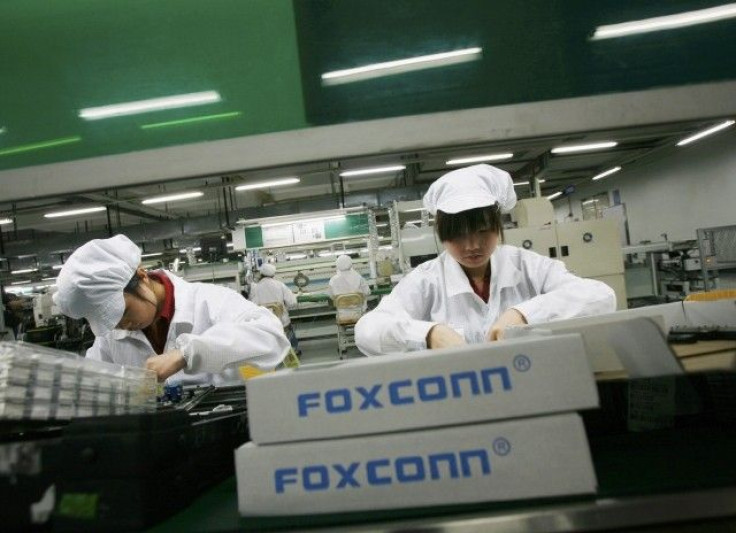Apple iPhone 5 Release Problems: At Foxconn, Quality And Speed Stuck In Gridlock

Since its release on Sept. 21, reviews of the iPhone 5 have been universally positive, with one minor exception: The black and slate iPhone 5 model is easily susceptible to scuffs, scratches and chips. After its record-setting weekend, more than 1,300 iPhone 5 owners were surveyed about the quality of their device coming out of the box. Of those polled, more than 36 percent of repsondents said their black iPhone 5 was “scuffed out of the box.”
Apple’s senior VP of marketing Phil Schiller was quick to admit that the black iPhone 5, with its anondized aluminum back, was susceptible to scratches, scrapes or chips that expose its natural silver color, calling it “normal.” Yet, since those early customer complaints, Apple has since doubled down on its supply and manufacturing chains in Asia and tightened the quality control standards at Foxconn, its foremost manufacturing plant. Unfortunately, this quality crackdown across the production lines has resulted in unintended consequences, including disgruntled line workers, fights between employees, and an overall deceleration on the phone’s production.
These civil and labor disputes are slowing down the already-long and arduous process of making an iPhone. Not only do the workers need to spend more time on each particular phone, ensuring its aesthetic quality coming off the line, but now they also need to deal with the added drama between co-workers and supervisors.
Unfortunately, this problem has less to do with the people and more to do with the technology. According to Bloomberg, the scratches “are due to Apple’s decision to use a type of aluminum that helps make the smartphone thinner and lighter,” but stricter benchmarks have only led to halts in production and growing concerns, rather than the other way around.
“The iPhone 5 is not easy to put together because it’s a minimalist design,” said Shaw Wu, an analyst at Sterne, Agee & Leach Inc, in an interview with Bloomberg. “Apple has a very high standard, where it aims to produce each model to be an exact replica where variance is measured in microns.”
Apple’s penchant for perfection, while admirable, has not been sitting well with employees at Foxconn or Han Hai, the company whose warehouses assemble the iPhone 5. Last Friday, China Labor Watch reported on a worker walk-out, where between 3,000 to 4,000 quality control workers reportedly stopped working on Oct. 6 as a result of Apple’s exceedingly high quality standards. Foxconn has since denied such a strike.
And if the scuffing issue weren’t enough to slow down production, a reported shortage of new display screens has also contributed to the speed suppression from manufacturing to delivery.
It all boils down to one simple fact: Apple can’t have its cake and eat it too. If Apple tells Foxconn employees to pick up their pace, more iPhone 5 models will be scratched and scuffed out of the box. If Apple tells Foxconn employees to perform more quality control measures, speed is slowed down and workers are pressured even more to deliver a perfect product, every time. As if the pressure to make a functional iPhone in the first place wasn’t enough.
Until Apple can build its iPhones and iPads with machinery only, it needs to learn how to apply its impossibly high standards for products to the treatment of its workers.
© Copyright IBTimes 2024. All rights reserved.












